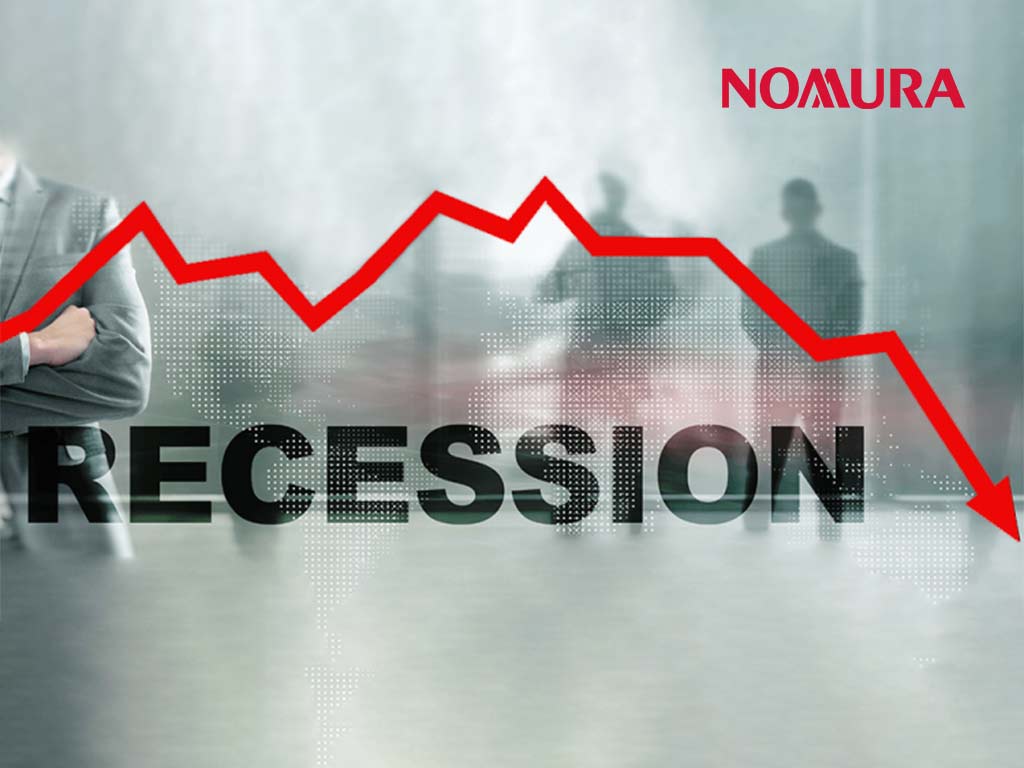Major economies to go into recession in 12 months- Nomura

According to the chief economist at the brokerage firm Nomura holdings, many of the world’s leading economies will enter a recession within the next 12 months as central banks move to aggressively tighten monetary policy in order to combat surging inflation
According to the chief economist at the brokerage firm Nomura holdings, many of the world's leading economies will enter a recession within the next 12 months as central banks move to aggressively tighten monetary policy in order to combat surging inflation. This prediction was made by the firm's chief economist.
"At the present time, many of the world's central banks have changed their focus to essentially a single mandate, which is to bring down inflation. The credibility of monetary policy is an asset that cannot be sacrificed at any cost. According to Rob Subbaraman, who is also the head of global markets research for Asia excluding Japan, "They are thus going to be quite aggressive."
According to a research note published by the brokerage firm Nomura, the company forecasts that in addition to the United States, the euro area, the United Kingdom, Japan, South Korea, Australia, and Canada will all experience recessions in 2019.
That implies that rate increases will take effect immediately. We have been warning for the past few months about the potential for a recession, and now we have finally decided to take action. And today, many of the developed economies are genuinely slipping into recession," he warned. "This is a very worrying trend."
When many economies are contracting, it is impossible to rely on exports as a source of growth. This is something else that I want to bring out. Another reason why we believe that the possibility of a recession is quite serious and will probably occur is because of this.
As per Subbaraman, the central banks throughout the world maintained a "hyper loose monetary policy" for an excessively long period of time in the vain hope that inflation would be temporary. According to what he told CNBC, governments now need to play catch up and work toward regaining control of the narrative around inflation.
When many economies are contracting, it is impossible to rely on exports as a source of growth. This is something else that I want to bring out. According to Subbaraman, "this recession risk is quite real, and it will likely happen." That's another reason why we think it's likely to happen.
On the 20th of May, 2022, in Washington, District of Columbia, Thomas Calomiris, a third generation vegetable dealer, weighs an onion at Eastern Market as the United States battles with growing inflation.
"The United States will enter a recession, which will result in negative quarter-on-quarter GDP growth beginning in the fourth quarter of this year. It is going to be a mild recession, but it is going to last for a while. According to Subbaraman, "we have it lasting for the last five quarters in a row."
The Federal Reserve in the United States and the European Central Bank are two of the organisations working to reduce the effects of record inflation by increasing interest rates.
In June, the Federal Reserve raised its benchmark interest rate by 75 basis points, bringing it up to a range of 1.5 percent to 1.75 percent. Chair Jerome Powell has hinted that there might be another increase in July of either 50 or 75 basis points.
Because we see inflation as being sticky — it's going to be high, the Federal Reserve will continue to tighten monetary policy even while the economy continues to contract. Subbaraman made the observation that it will be hard to retreat.
When asked about Nomura's forecasts, the economist explained their thinking by saying, "We have the Fed increasing 75 [basis points] in July and then 50 at the next meeting." Following that, there will be a series of 25 [basis point] increases until the Fed funds rate reaches 3.75 percent by February of the following year.
The dangers that face economies of medium size
Nomura highlighted numerous mid-sized economies, such as Australia, Canada, and South Korea, in their research note. These economies have all seen property bubbles that were powered by debt. According to the paper, if interest rate rises cause housing collapses and deleveraging, these countries face the possibility of recessions that are more severe than previously anticipated.
According to the paper, "The odd one out is China," which is currently rebounding from a recession as the economy unlocks amid accommodating measures. Despite this, China is at risk of further lockdowns and another recession as long as Beijing keeps to its objective of pursuing zero-Covid growth.
It is difficult to phrase this in a diplomatic manner, but it is better for the global economy and society to endure the discomfort now in order to get inflation under control than it would be to allow inflation to spiral out of control, as was the case in the 1970s.

